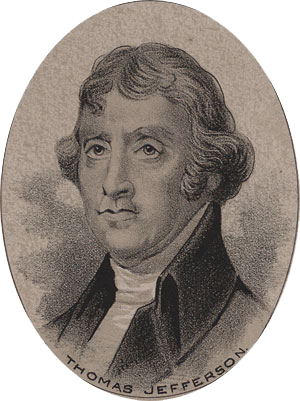 |
| John F. Kennedy in 1946 |
I would remind Mr. Stoll that the Patron Saint of the Republicans, Ronald Reagan was a Democrat at the time Kennedy made that speech. He switched his affiliation in 1962.
Kennedy was speaking to a largely Irish Catholic crowd who he knew would vote for him. But Stoll seems to think that this makes the American Revolution into a Religious revolution and proceeds to try to redefine our Liberal Revolution as some kind of a religion-inspired Christian-based movement. Nothing could be further from the truth. Conservatives continue to call our Revolution a "Christian Revolution" and a "Conservative anti-tax Revolution." This is absolutely false.
Kennedy and the rest of Congress did want to make a stand against "Godless Communism," as they saw it as a threat to the United States. The desire to oppose the Soviets came about because of the increasingly hostile stance between the Soviets and the western world. We do this today, opposing Sharia Law (without understanding anything about it) and by "trying to foster Democracy" (when the United States is a Republic with representatives, not a Democracy) in countries that are mostly Muslim-dominated these days.
Mr. Stoll loves to "cherry-pick" history and take things out of context to fit into his scheme to take back our Liberal Revolution so that it supports his Conservative aims. Were he a staunch Conservative then, he would have been called a "Loyalist," and certainly would have lost all property he owned in the United States in his move to Canada or, perhaps, England. Please see my earlier article dealing with that.
 |
| King George III around 1770 |
Since Mr. Stoll doesn't seem to know what all that means, allow me to translate. George III was King "By the Grace of God." This is a reference to the Divine Right to Rule: A political and religious doctrine of royal and political legitimacy. It asserts that a monarch is subject to no earthly authority, deriving his right to rule directly from the will of God. Not only did George III claim that he had this divine right, but he was also arbiter of all things divine here on earth, as he retained the style given to Henry VIII, "Defender of the Faith." In other words, George III proposed that he was subject to no earthly authority and that he, alone, would determine and defend the will of God.
The Declaration of Independence was primarily addressed to King George III and his Parliament but was also meant to be read by other countries. It was a diplomatic document designed to allow for the recognition of the United States by foreign powers, which would enable us to ask for loans from the French King, Spain, Holland and other governments. The Sultan of Morocco mentioned American ships in a consular document as early as 1777 and this must really have bothered England, as they commissioned propagandists to point out the declaration’s flaws and rebut the colonists’ complaints.
As such, one needed to write a document that would be read widely and understood by all governments, no matter what their societal and religious views.
Thomas Jefferson, John Adams and Benjamin Franklin were commissioned by the Continental Congress to write the Declaration. And this document was researched, unlike Mr. Stoll's opinion article in Time. The idea that any part of a kingdom could claim legitimacy for breaking away from another part of a kingdom, let alone its ruler (divinely-ordained, by the way) was pretty earthshaking. So Jefferson drew from several sources that he referred to as giving us the right to do this.
The first source was an act of Parliament in February 1776, called the Prohibitory Act. This, essentially, called for a blockade of all Colonial ports and declared all ships from these shores to be enemy vessels. I am certain that Mr. Stoll would agree with me that a port blockade is an act of war and that allowing any and all of your ships to declare ships from a certain region as enemies, when all they are doing is carrying goods for sale and picking up more goods to bring here a bit rash. But maybe there is religion involved. Maybe God wanted all of our shipping sunk. In the declaration:
He [George III] has given his assent to… legislation… cutting off our trade with all parts of the world. He has plundered our seas, ravaged our coasts, burned our towns, and destroyed the lives of our people. He has constrained our fellow citizens taken captive on the high seas to bear arms against their country, to become the executioners of their friends and brethren, or to fall themselves by their hands.Remember, the Conservatives here are thinking the King is justified. After all, God made him King and absolute arbiter of divine will.
The most telling example of Jefferson's patient research is this:
He has abdicated government here, by declaring us out of his protection and waging war against us.
 |
| James II of England Abdicated by Fleeing |
This was a very careful argument and quite devastating to the King of England.
Our religions, as practiced here in the Colonies had nothing to do with this. The mention of "the laws of nature and of nature's God," "their Creator,"the "Supreme Judge of the world" and "reliance on the protection of Divine Providence" do not make the Declaration into a religious treatise but, rather, offer enhanced legitimacy to the opposition of the King's "divine right" to rule here.

No comments:
Post a Comment